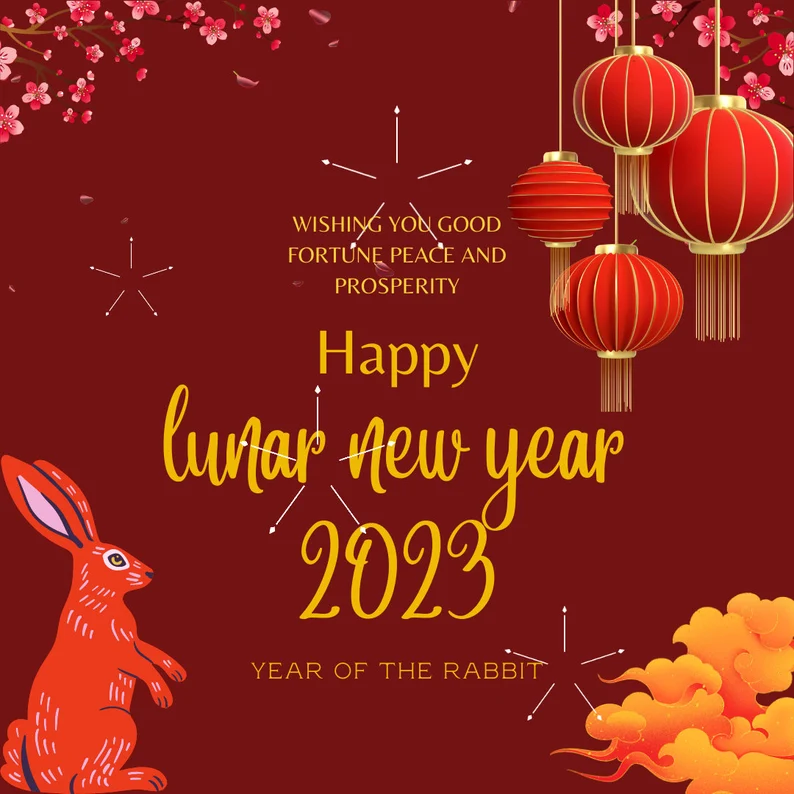Last weekend, the Chinese community celebrated the lunar Chinese New Year, which this year heralded in the “Year of the Rabbit.”
The rabbit is the fourth animal in the zodiac sequence of twelve and is seen as the luckiest. People born in the year of rabbit are believed to be vigilant, witty, quick-minded and ingenious.
Chinese New Year can fall anywhere between January 19th and February 21st depending upon the first full moon in the Far East. Festivities begin on the first day of the Chinese New Year and end fifteen days later. The 15th day is called the Lantern Festival, celebrated at night with children carrying lanterns in a parade. These festivities are also referred to as the Spring Festival.
Ancient traditions of Chinese New Year confirm it as being a time of family, reunion and thanksgiving, and it was traditionally combined with a religious ceremony in honour of Heaven and Earth, the gods of the household and the family ancestors.
There are also many ancient superstitions connected to Chinese New Year and, even though many may not still be believed today, they provide continuity with an ancient past.
One such superstition concerns house cleaning. It is believed that all cleaning of the house should be done before the New Year and then brooms, brushes and other cleaning equipment should be put away, otherwise all the good fortune for the new year will also be swept away. After New Year’s Day has passed, any dust and dirt should then be swept out the back door of the house. It is believed that good fortune always comes in by the front door. On New Year’s Eve in fact, windows should be opened allowing the old year to leave more easily and make way for the new.
Another superstition states that all debts must be paid before New Year’s and nothing must be lent during this period of celebration. In addition, no foul language should be used during the celebrations and there must be no talk of death, dying or ghost stories. No reference should be made to the past year for fear of bad luck, and there should be no crying or washing of hair on New Year’s Day. Washing hair, it is thought, will wash away good luck.
The colour Red is very popular in the Chinese community and is especially so at New Year when it is worn liberally. Children and all unmarried friends are also presented with Lai See (in Cantonese), which are little red envelopes with money inside for good fortune.
Yet another superstition concerns knives and scissors which should not be seen on New Year’s Day for fear of good fortune being cut off.
Just as Christmas is the most honoured and festive holiday in the Christian world, the Spring Festival at Chinese New Year is considered the most important holiday in China during its 15 day duration. In China it is marked with a three-day National Holiday and the first two days of the New Year are spent visiting friends and relatives. By the fourth day most people return to work, but in some areas, the celebrations continue until the fifteenth day when the Lantern Festival is held.
During the Lantern Festival, homes are decorated with colourful lanterns and a special gourmet treat called Yuanxiao, rice-flour balls stuffed with meat or sweet fillings and similar to a dumpling in appearance, are eaten.
Chinese New Year is a time of peace and happiness within the family and is celebrated as such. During this happy time, I would be interested to hear from any members of the Chinese community about other favourite customs and traditions still celebrated. I am sure there are many more I have overlooked.



